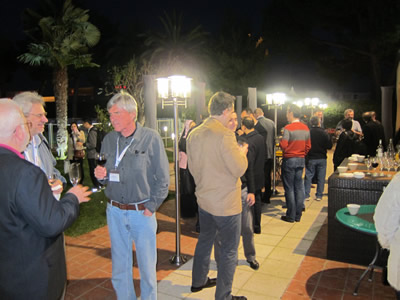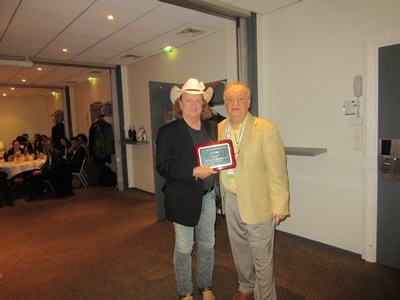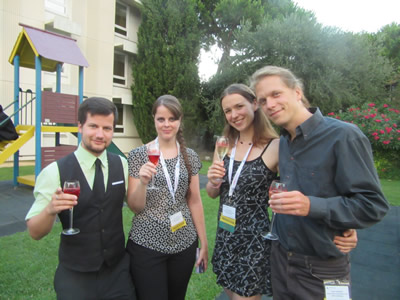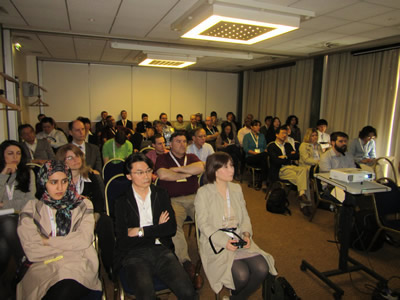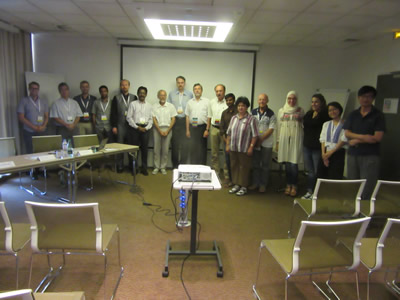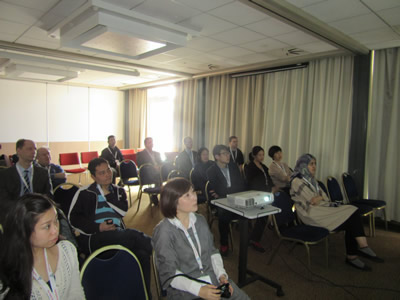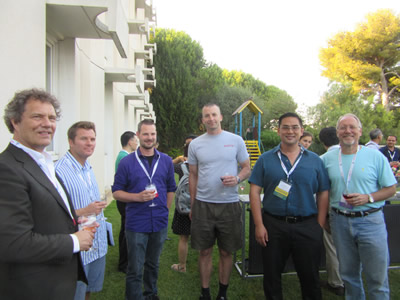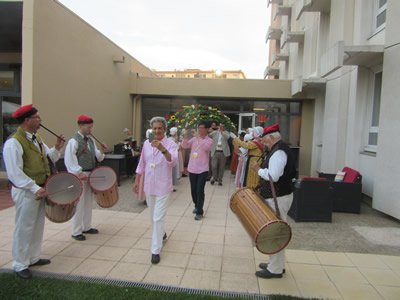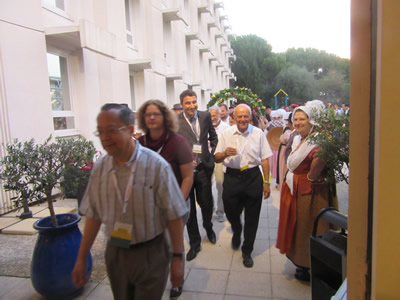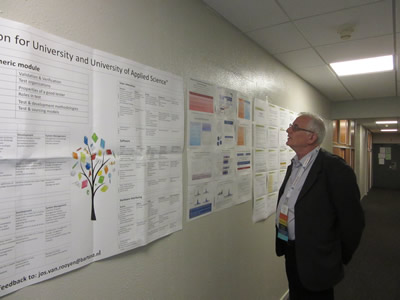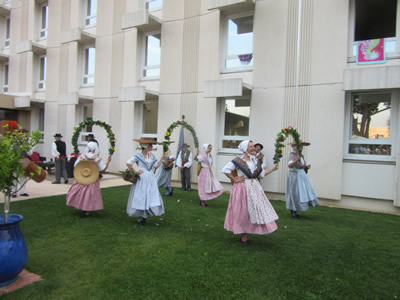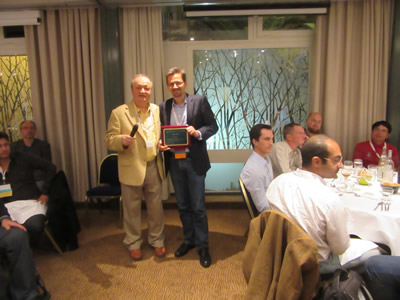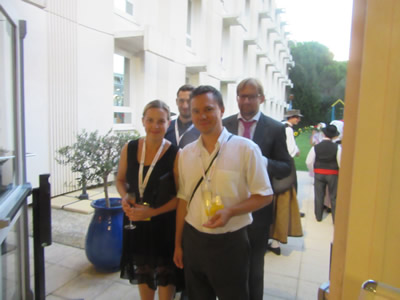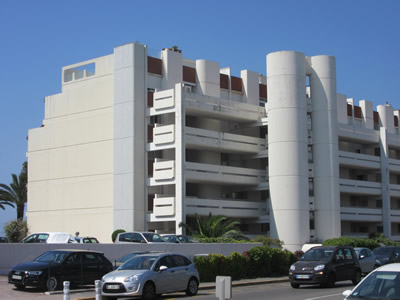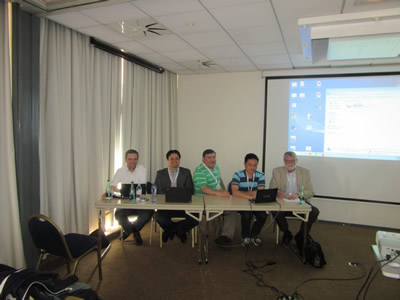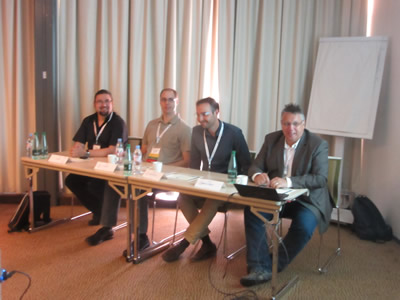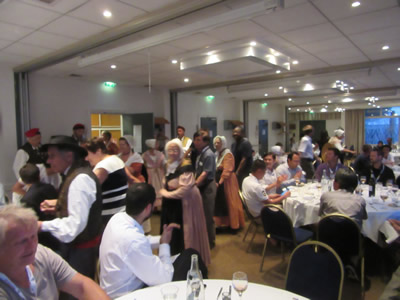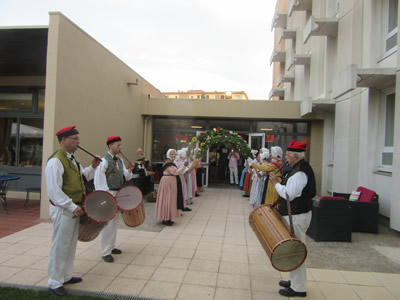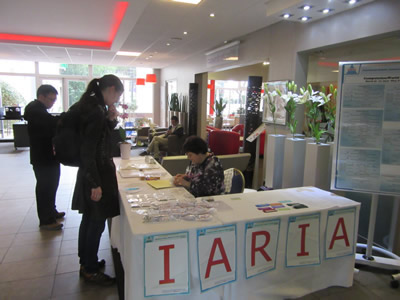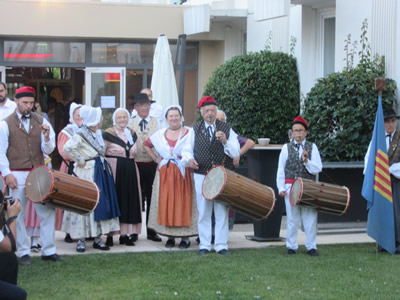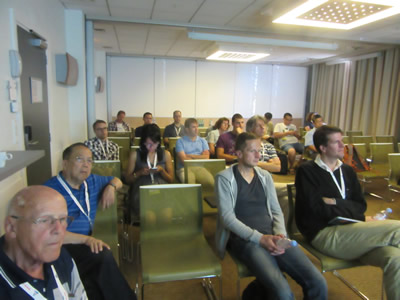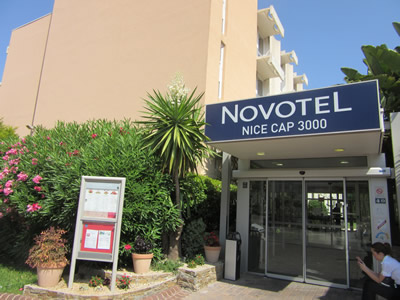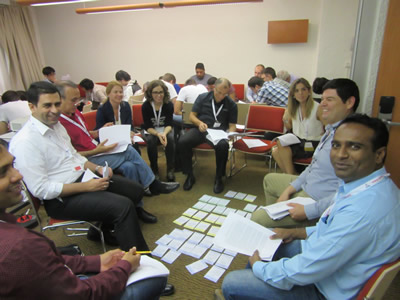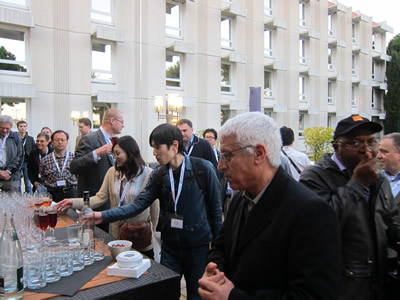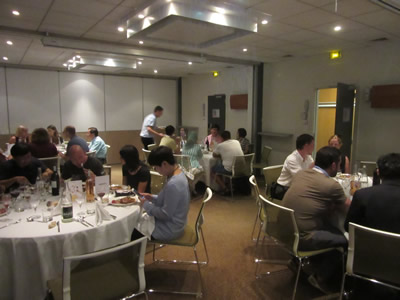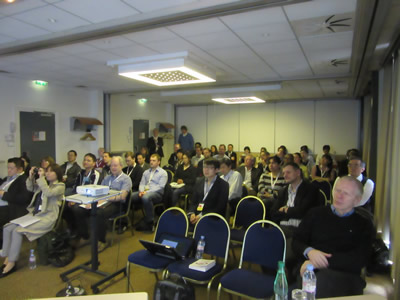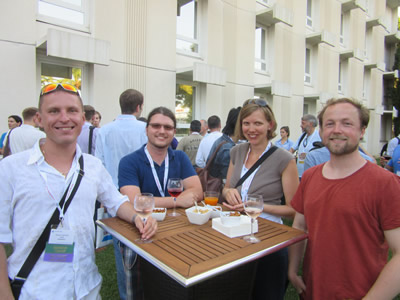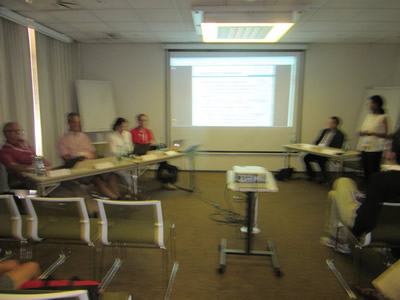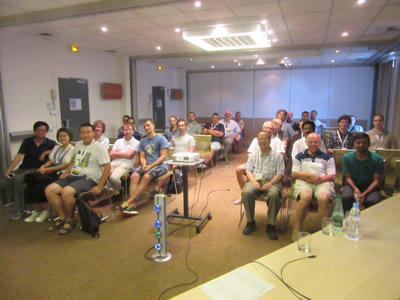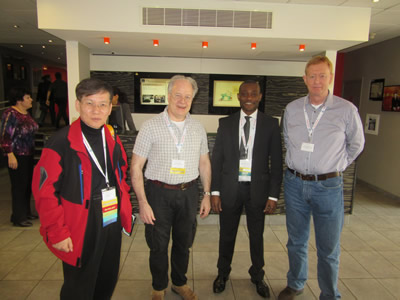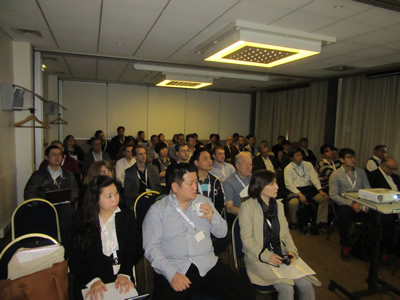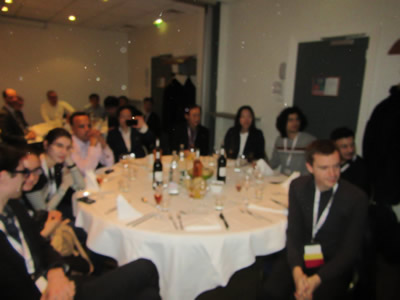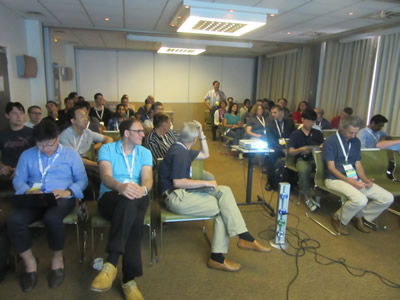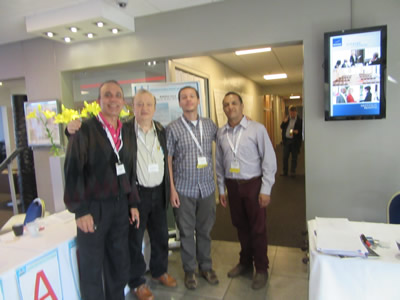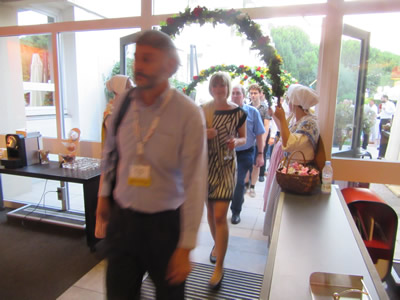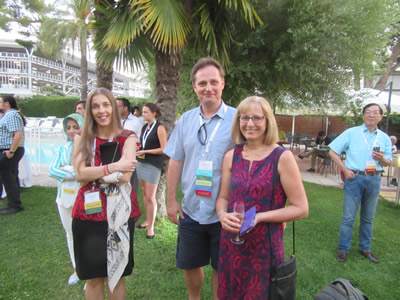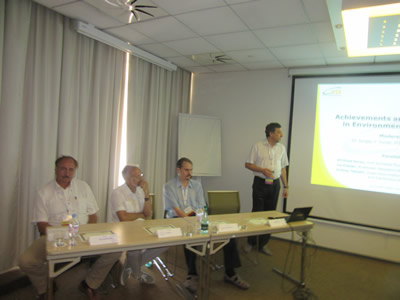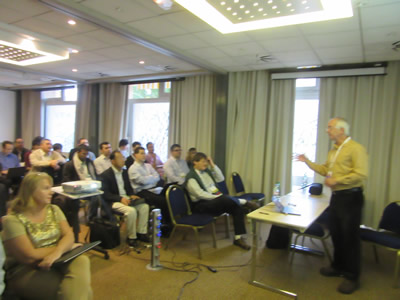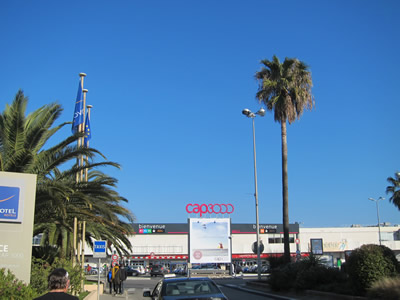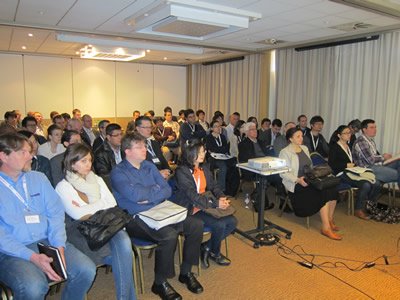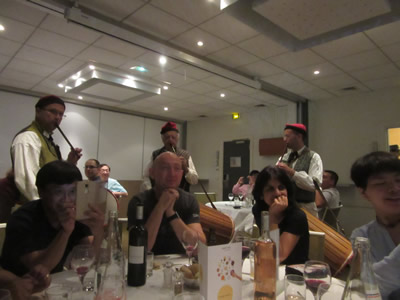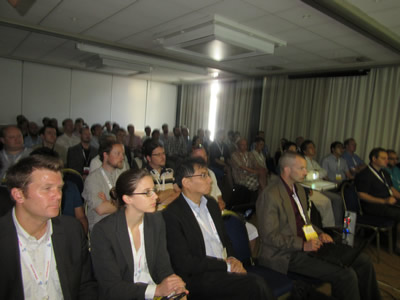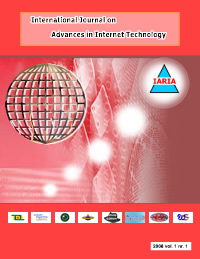AFIN 2024 - The Sixteenth International Conference on Advances in Future Internet
November 03, 2024 - November 07, 2024
AFIN 2024: Call for Papers
Onsite and Online Options: In order to accommodate a large number of situations, we are offering the option for either physical presence or virtual participation (pdf slides or pre-recorded videos).
We are in the early stage of a revolution on what we call Internet now. Most of the design principles and deployments, as well as originally intended services, reached some technical limits and we can see a tremendous effort to correct this. Routing must be more intelligent, with quality of service consideration and 'on-demand' flavor, while the access control schemes should allow multiple technologies yet guarantying the privacy and integrity of the data. In a heavily distributed network resources, handling asset and resource for distributing computing (autonomic, cloud, on-demand) and addressing management in the next IPv6/IPv4 mixed networks require special effort for designers, equipment vendors, developers, and service providers.
The diversity of the Internet-based offered services requires a fair handling of transactions for financial applications, scalability for smart homes and ehealth/telemedicine, openness for web-based services, and protection of the private life. Different services have been developed and are going to grow based on future Internet mechanisms. Identifying the key issues and major challenges, as well as the potential solutions and the current results paves the way for future research.
AFIN 2024, The Sixteenth International Conference onAdvances in Future Internet, continues a series of events dealing with advances on future Internet mechanisms and services.
We solicit both academic, research, and industrial contributions. We welcome technical papers presenting research and practical results, position papers addressing the pros and cons of specific proposals, such as those being discussed in the standard fora or in industry consortia, survey papers addressing the key problems and solutions on any of the above topics short papers on work in progress, and panel proposals.
Industrial presentations are not subject to the format and content constraints of regular submissions. We expect short and long presentations that express industrial position and status.
Tutorials on specific related topics and panels on challenging areas are encouraged.
The topics suggested by the conference can be discussed in term of concepts, state of the art, research, standards, implementations, running experiments, applications, and industrial case studies. Authors are invited to submit complete unpublished papers, which are not under review in any other conference or journal in the following, but not limited to, topic areas.
All topics and submission formats are open to both research and industry contributions.
AFIN 2024 conference tracks:
Trends
IPv6-based Internet of Things (IoT) and Cloud Computing; Web of Things (WoT); Mobile cloud computing; Autonomous IoT; Wearable and mobile devices; Smart mobile terminals; Data in the IoT; Real-time big data; LTE networks wiht M2M (machine-to-machine) devices; Adaptive Streaming; Secure IoT device authentication; Standardization of IoT applications; Flow-based security; Adaptive trust; Security operations centers; Trusted data marketplaces; IoT Cloud-based videoconferencing systems; Large-scale datacenter networks; Traffic-aware control systems; Short-term traffic forecasting; Energy efficiency; Differentiated services; Internet neutrality; Pricing Ontology; Micro-billing
Transforming Internet
Transforming Sociotech Design for Internet; Persuasive Internet; Computer-supported influence; Socially influencing systems; Human-internet interaction; Influential Internet platforms; Scalable health behavior change; Online persuasion; Persuasive social media; Socially influencing User Experience (UX); Persuasive wellbeing; Artificial persuasion online; Autonomous Internet solutions
New Internet Challenges
SDN, SDX, NFV; 4G/5G and advanced mobile Internet; Internet of X (everything, things, people, etc.); Internet, Virtualization and Cloud; Internet and Big Data; Sensing and sensor networks; Energy-aware networks; Content-oriented networking; Cellular cognitive networks; Future routing mechanisms
Internet Mechanisms
Internet protocols; Routing /multicast, on-demand, QoS-routing/etc./; Access control /multi technology/; Algorithms for broadband infrastructure; Address management /locator-location paradigm/; Recovering and fault-tolerance; In-network processing; Distributing computing /autonomic, on-demand, cloud/etc./; Context-aware and context recognition; Data-centers and nano-centers; Information processing /distribution, discovery, sharing/; Virtualization; Overlay infrastructure; Intelligent Web services; Service-centric networking
New Internet tooling
Integrate IPods, iPhones, Xboxes, and TiVos; Deliver IPTV, Triple-play and Quadruple play; Knowledge and social networks through Google map, YouTube and FaceBook; Knowledge dissemination and discovery; Distributed gaming; Web 2.0 and Semantic Web; Interactive television; Virtual 3-D videoconferencing; Telepresence
Challenging features
Internet computing; Distributed feature interaction; All-IP versus protocol translation; IP simplified network management; Security, trust, and privacy; Network stability under topology change; Delay-tolerant IP networks; Trustworthy Internet; Mobile computing; Ubiquitous computing; Reliability; Resilience; Scalability; User and service mobility; Wireless QoS; Traffic engineering; Network planning; Intermittent services; Virtualization; Self-management and control
Internet services and applications
Internet and private networking; Internet and smart homes; Internet and Web services; Internet and tracking systems; Internet and ehealth/telemedicine; Internet and sensor networks; Internet and financial applications; Internet and kids education; Internet and body-networks;Network-as-a-platform
Deadlines:
Submission | Aug 16, 2024 |
Notification | Sep 18, 2024 |
Registration | Sep 26, 2024 |
Camera ready | Oct 04, 2024 |
Deadlines differ for special tracks. Please consult the conference home page for special tracks Call for Papers (if any).
INSTRUCTION FOR THE AUTHORS
Authors of selected papers will be invited to submit extended versions to one of the IARIA Journals.
Publisher: XPS (Xpert Publishing Services)
Archived: ThinkMindTM Digital Library (free access)
Prints available at Curran Associates, Inc.
How to submit to appropriate indexes.
Only .pdf or .doc files will be accepted for paper submission. All received submissions will be acknowledged via an automated system.
Contribution types
- regular papers [in the proceedings, digital library]
- short papers (work in progress) [in the proceedings, digital library]
- ideas: two pages [in the proceedings, digital library]
- extended abstracts: two pages [in the proceedings, digital library]
- posters: two pages [in the proceedings, digital library]
- posters: slide only [slide-deck posted on www.iaria.org]
- presentations: slide only [slide-deck posted on www.iaria.org]
- demos: two pages [posted on www.iaria.org]
FORMATS
Only .pdf or .doc files will be accepted for paper submission. All received submissions will be acknowledged via an automated system.
Final author manuscripts will be 8.5" x 11", not exceeding 6 pages; max 4 extra pages allowed at additional cost.
Helpful information for paper formatting for MS Word can be found here.
There is a community provided LaTeX template: the CTAN package iaria (with full IARIA formatting rules, including IARIA citation style, but for providing citation style it is tightly bound to pdflatex+biblatex+biber). In addition, there is also iaria-lite (not bound to pdflatex+biblatex+biber, but compatible with any TeX stack; thus, it cannot provide the IARIA citation formattings, but only the titlepage and content-related IARIA formatting rules). Based on the iaria package, there is a minimal working example as Overleaf template. When you are using the LaTeX templates, please still adhere to the additional editorial rules.
Slides-based contributions can use the corporate/university format and style.
Your paper should also comply with the additional editorial rules.
Once you receive the notification of contribution acceptance, you will be provided by the publisher an online author kit with all the steps an author needs to follow to submit the final version. The author kits URL will be included in the letter of acceptance.
We would recommend that you should not use too many extra pages, even if you can afford the extra fees. No more than 2 contributions per event are recommended, as each contribution must be separately registered and paid for. At least one author of each accepted paper must register to ensure that the paper will be included in the conference proceedings and in the digital library, or posted on the www.iaria.org (for slide-based contributions).
CONTRIBUTION TYPE
Regular Papers (up to 6-10 page article -6 pages covered the by regular registration; max 4 extra pages allowed at additional cost- ) (oral presentation)
These contributions could be academic or industrial research, survey, white, implementation-oriented, architecture-oriented, white papers, etc. They will be included in the proceedings, posted in the free-access ThinkMind digital library and sent for indexing. Please submit the contributions following the instructions for the regular submissions using the "Submit a Paper" button and selecting the appropriate contribution type. 12-14 presentation slides are suggested.
Short papers (work in progress) (up to 4 pages long) (oral presentation)
Work-in-progress contributions are welcome. These contributions represent partial achievements of longer-term projects. They could be academic or industrial research, survey, white, implementation-oriented, architecture-oriented, white papers, etc. Please submit the contributions following the instructions for the regular submissions using the "Submit a Paper" button and selecting the contribution type as work in progress. Contributors must follow the conference deadlines, describing early research and novel skeleton ideas in the areas of the conference topics. The work will be published in the conference proceedings, posted in the free-access ThinkMind digital library and sent for indexing. For more details, see the Work in Progress explanation page. 12-14 presentation slides are suggested.
Ideas contributions (2 pages long) (oral presentation)
This category is dedicated to new ideas in their very early stage. Idea contributions are expression of yet to be developed approaches, with pros/cons, not yet consolidated. Ideas contributions are intended for a debate and audience feedback. Please submit the contributions following the instructions for the regular submissions using the "Submit a Paper" button and selecting the contribution type as Idea. Contributors must follow the conference deadlines, describing early research and novel skeleton ideas in the areas of the conference topics. The work will be published in the conference proceedings, posted in the free-access ThinkMind digital library and sent for indexing. For more details, see the Ideas explanation page. 12-14 presentation slides are suggested.
Extended abstracts (2 pages long) (oral presentation)
Extended abstracts summarize a long potential publication with noticeable results. It is intended for sharing yet to be written, or further on intended for a journal publication. Please submit the contributions following the instructions for the regular submissions using the "Submit a Paper" button and selecting the contribution type as Extended abstract. Contributors must follow the conference deadlines, describing early research and novel skeleton ideas in the areas of the conference topics. The work will be published in the conference proceedings, posted in the free-access ThinkMind digital library and sent for indexing. 12-14 presentation slides are suggested.
Posters (paper-based, two pages long) (oral presentation)
Posters are intended for ongoing research projects, concrete realizations, or industrial applications/projects presentations. The poster may be presented during sessions reserved for posters, or mixed with presentation of articles of similar topic. A two-page paper summarizes a presentation intended to be a POSTER. This allows an author to summarize a series of results and expose them via a big number of figures, graphics and tables. Please submit the contributions following the instructions for the regular submissions using the "Submit a Paper" button and selecting the contribution type as Poster Two Pages. Contributors must follow the conference deadlines, describing early research and novel skeleton ideas in the areas of the conference topics. The work will be published in the conference proceedings, posted in the free-access ThinkMind digital library and sent for indexing. 8-10 presentation slides are suggested. Also a big Poster is suitable, used for live discussions with the attendees, in addition to the oral presentation.
Posters (slide-based, only) (oral presentation)
Posters are intended for ongoing research projects, concrete realizations, or industrial applications/projects presentations. The poster may be presented during sessions reserved for posters, or mixed with presentation of articles of similar topic. The slides must have comprehensive comments. This type of contribution only requires a 8-10 slide-deck. Please submit the contributions following the instructions for the regular submissions using the "Submit a Paper" button and selecting the contribution type as Poster (slide-only). The slide-deck will be posted, post-event, on www.iaria.org.
8-10 presentation slides are suggested. Also a big Poster is suitable, used for live discussions with the attendees, additionally to the oral presentation.
Presentations (slide-based, only) (oral presentation)
These contributions represent technical marketing/industrial/business/positioning presentations. This type of contribution only requires a 12-14 slide-deck. Please submit the contributions following the submission instructions by using the "Submit a Paper" button and selecting the contribution type as Presentation (slide-only). The slide-deck will be posted, post-event, on www.iaria.org.
12-14 presentation slides are suggested.
Demos (two pages) [posted on www.iaria.org]
Demos represent special contributions where a tool, an implementation of an application, or a freshly implemented system is presented in its alfa/beta version. It might also be intended for thsoe new application to gather the attendee opinion. A two-page summary for a demo is intended to be. It would be scheduled in special time spots, to ensure a maximum attendance from the participants. Please submit the contributions following the submission instructions by using the "Submit a Paper" button and selecting the contribution type as Demos. The Demos paper will be posted, post-event, on www.iaria.org.
Tutorial proposals
Tutorials provide overviews of current high interest topics. Proposals should be for 2-3 hour long. Proposals must contain the title, the summary of the content, and the biography of the presenter(s). The tutorial slide decks will be posted on the IARIA site.
Please send your proposals to tutorial proposal
Panel proposals
The organizers encourage scientists and industry leaders to organize dedicated panels dealing with controversial and challenging topics and paradigms. Panel moderators are asked to identify their guests and manage that their appropriate talk supports timely reach our deadlines. Moderators must specifically submit an official proposal, indicating their background, panelist names, their affiliation, the topic of the panel, as well as short biographies. The panel slide deck will be posted on the IARIA site.
Please send your proposals to panel proposal

